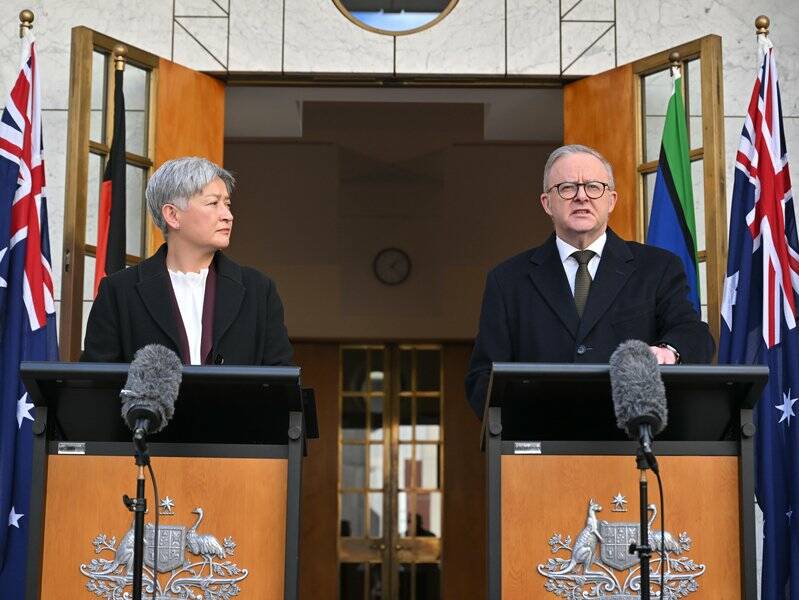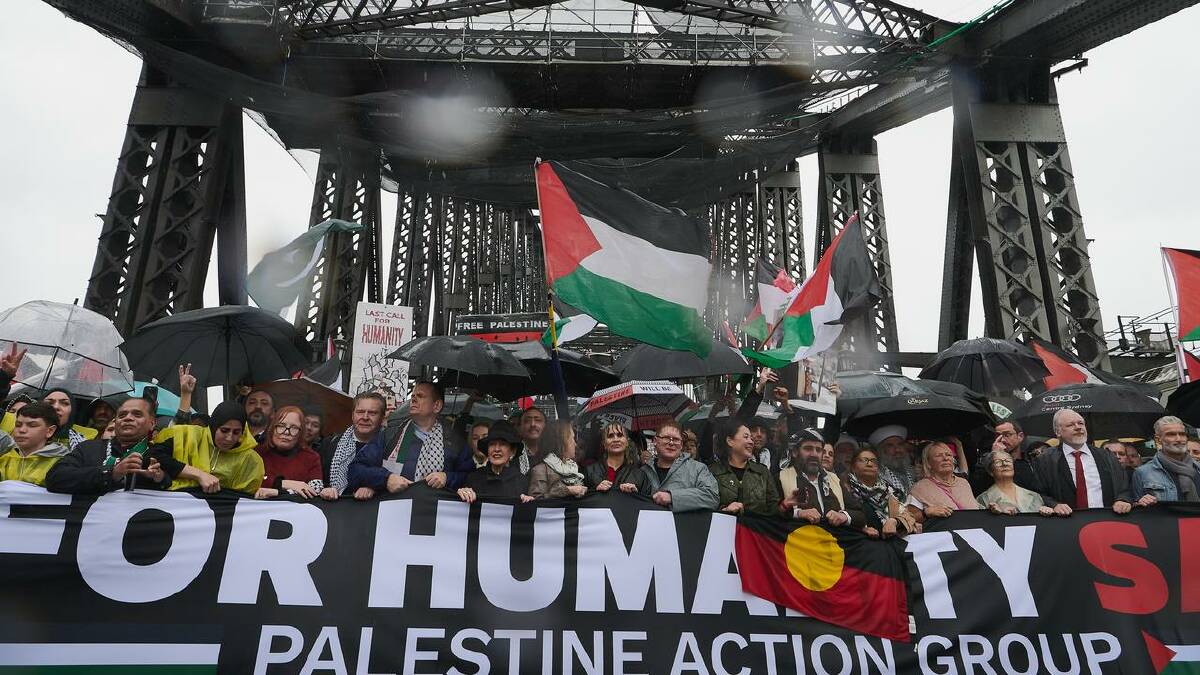
Australia will formally recognise a Palestinian state in a historic diplomatic shift that aims to "break the cycle of violence" in the Middle East.
Subscribe now for unlimited access.
or signup to continue reading
See subscription optionsAnthony Albanese has announced Australia will join allies such as France, the UK and Canada and recognise Palestinian statehood at the United Nations General Assembly meeting in September.
"Australia will recognise the right of the Palestinian people to a state of their own, predicated on the commitments Australia has received from the Palestinian Authority," the prime minister told reporters in Canberra on Monday.
"A two-state solution is humanity's best hope to break the cycle of violence in the Middle East and to bring an end to the conflict, suffering and starvation in Gaza."
The prime minister said Palestinian recognition was part of international efforts to resolve the conflict in the Middle East.
"This is a practical contribution towards building momentum. This is not Australia acting alone," he said.
"An end (to the conflict) can only be secured when both Israelis and Palestinians can live in peace and security."
Any recognition would need to guarantee that the designated terror group Hamas, which de facto governs Gaza, played no role in its future government, the prime minister said.
Mr Albanese also revealed he spoke on Thursday to Israeli Prime Minister Benjamin Netanyahu, saying the situation in Gaza had gone "beyond the world's worst fears" and urged for a political solution to the conflict.
Ahead of the announcement, Mr Netanyahu said the stances taken by Australia and other nations on Palestine were "shameful" and warned it would not create peace in the Middle East.

Foreign Minister Penny Wong confirmed she spoke with US Secretary of State Marco Rubio about Australia's intention to recognise Palestine before the decision was formally announced.
The federal government has been under increasing pressure to do more in relation to the Middle East, after images of emaciated children poured out of the Gaza Strip.
At least 90,000 protesters marched across the Sydney Harbour Bridge in early August, alongside thousands more in other Australian capitals, urging the government to sanction Israel.
The prime minister said the international community had to act.
"This is about much more than drawing a line on a map. This is about delivering a lifeline to the people of Gaza," he said.
"The toll of the status quo is growing by the day, and it can be measured in innocent lives. The world cannot wait for success to be guaranteed."
But Palestinian recognition could be used as a "veneer" that allows Israel to "continue brutalising Palestinians with no consequences", Australia Palestine Advocacy Network's president Nasser Mashni warned.

The Palestine Action Group said the move by the government was only symbolic and would not address issues on the ground in Gaza.
"Recognition without sanctions is an empty gesture. It will not stop the bombs, the siege, or the starvation. It will not save lives," a spokesman said.
Opposition defence spokesman Angus Taylor said the recognition was premature.
"This is a reward to Hamas for what they started on October 7 … if you start going down this path, I think Hamas will be very pleased with their work, and that's exactly the opposite of what we want to see," he told Sky News.
Greens senator David Shoebridge said the recognition was overdue, but should also include sanctions on Israel.

The crisis in Gaza began when Hamas attacked Israel on October 7, 2023, killing 1200 people and taking about 250 more hostage.
Israel's response has since killed more than 61,000 people, according to Gaza's health authorities, and UN sources project more than two million people are facing high levels of acute food insecurity.
Israel has denied that the population is suffering or dying from starvation despite international human rights groups condemning its offensive.
Australian Associated Press

